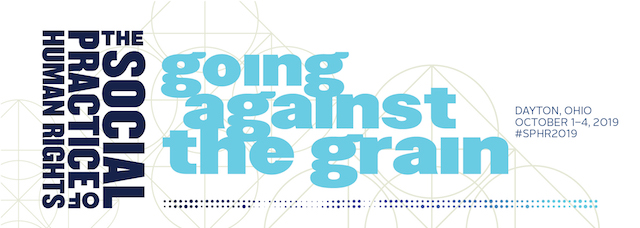Location
Challenges of Religious and Secular Literacy
Start Date
10-2-2019 11:30 AM
End Date
10-2-2019 1:00 PM
Keywords
Religious literacy, local faith actors, INGO, translation
Abstract
Partnering with Faith Communities: Challenges of Religious and Secular Literacy
While many scholars have noted the necessity of a grasp of the complexity of religious belief for engagement in international relations, human rights, and humanitarian work, the topic of religious belief remains fraught and underdeveloped in human rights activism. Concerns include the conviction that religion must be treated as private in order to preserve an inclusive public life; evidence that religious communities may oppose the human rights' groups commitments on LGBTQI and women's rights; and anxieties that various religious groups will exclude or manipulate those who are not members and use their influence to proselytize. On the other hand, some faith communities interested in partnering with human rights activism struggle to express and maintain their own distinctive missions, resisting instrumentalization of their resources.
This session will focus on the challenges of promoting religious literacy among international organizations and among partners. What is ‘religious literacy’? How is it related to a need for “secular literacy,” i.e. an understanding of the complexity of secularisms and the assumptions that undergird them, the biases that they entail? To what extent can various faiths and secularisms “translate” their beliefs, and how will faith actors and human rights activists cooperate around those aspects that cannot be translated?
Rob Brodrick, one of the authors of the Harvard Religious Literacy Project’s paper, “Local Humanitarian Leadership and Religious Literacy: Engaging with Religion, Faith, and Faith Actors,” will provide an overview of the state of the question. Three responses will be offered, including representation from faith communities interested in collaboration on human rights, human rights activism working to include faith communities, and scholars examining questions of “translation” of faith traditions.
Convener: Kelly Johnson
Main Presenter: Rob Broderick, Ph.D.
Respondents: Anwar Khan (Islamic Relief, USA), Edith Tapia (Hope Border Institute), Leocadie Lushombo (Boston College)
Author/Speaker Biographical Statement(s)
Rob Brodrick holds a Ph.D. from Boston College, having written a dissertation on the location and role of the Catholic Church within global power structures. Previously, he engaged in community development work in Dayton, OH and is a co-founder of the Mission of Mary Cooperative, a local non-profit organization dedicated to food access and sustainable livelihoods education. He holds an M.A. and B.S. from the University of Dayton. Kelly Johnson holds a BA in Theology and MA in Liturgical Studies at the University of Notre Dame, and a PhD in Theological Ethics at Duke University. Her scholarship since has explored the relationship of grace to Christian social ethics, treating topics such as gendered notions of the virtue of charity, a spirituality of conflict, the role of joy in human rights activism, and critiques of “stewardship” as a model for financial and environmental ethics. Dr. Johnson is an associate professor in the Department of Religious Studies at the University of Dayton.
Report from Harvard Religious Literacy Project that will be the basis for our discussion
Partnering with Faith Communities: Challenges of Religious and Secular Literacy
Challenges of Religious and Secular Literacy
Partnering with Faith Communities: Challenges of Religious and Secular Literacy
While many scholars have noted the necessity of a grasp of the complexity of religious belief for engagement in international relations, human rights, and humanitarian work, the topic of religious belief remains fraught and underdeveloped in human rights activism. Concerns include the conviction that religion must be treated as private in order to preserve an inclusive public life; evidence that religious communities may oppose the human rights' groups commitments on LGBTQI and women's rights; and anxieties that various religious groups will exclude or manipulate those who are not members and use their influence to proselytize. On the other hand, some faith communities interested in partnering with human rights activism struggle to express and maintain their own distinctive missions, resisting instrumentalization of their resources.
This session will focus on the challenges of promoting religious literacy among international organizations and among partners. What is ‘religious literacy’? How is it related to a need for “secular literacy,” i.e. an understanding of the complexity of secularisms and the assumptions that undergird them, the biases that they entail? To what extent can various faiths and secularisms “translate” their beliefs, and how will faith actors and human rights activists cooperate around those aspects that cannot be translated?
Rob Brodrick, one of the authors of the Harvard Religious Literacy Project’s paper, “Local Humanitarian Leadership and Religious Literacy: Engaging with Religion, Faith, and Faith Actors,” will provide an overview of the state of the question. Three responses will be offered, including representation from faith communities interested in collaboration on human rights, human rights activism working to include faith communities, and scholars examining questions of “translation” of faith traditions.
Convener: Kelly Johnson
Main Presenter: Rob Broderick, Ph.D.
Respondents: Anwar Khan (Islamic Relief, USA), Edith Tapia (Hope Border Institute), Leocadie Lushombo (Boston College)



